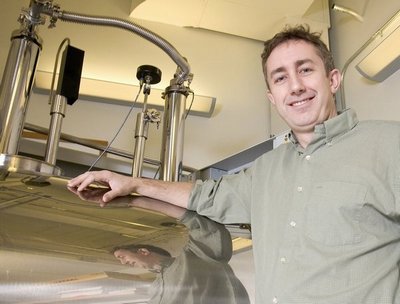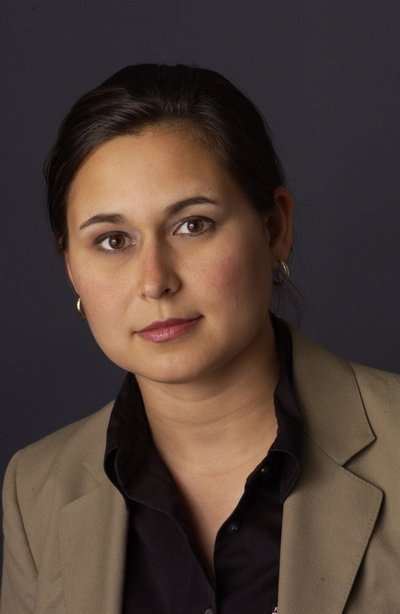December 22, 2008
Two UW faculty receive Presidential Early Career Award for Scientists and Engineers at White House ceremony
Two faculty members at the University of Washington have received the 2007 Presidential Early Career Award for Scientists and Engineers. Maya Gupta, assistant professor in the Department of Electrical Engineering and adjunct in the Department of Applied Mathematics, and Michael J. MacCoss, UW assistant professor in the Department of Genome Sciences, were among those honored Dec. 19 at a White House ceremony where 67 researchers were presented with the prestigious award. The award is the highest honor given by the U.S. Government to scientists and engineers beginning their careers. The award comes with $1 million in research funding for each recipient.
Gupta was honored for her work in developing theory and algorithms for estimation and statistical learning. Her group’s research projects include classifying sonar signals like whale calls and ship noise, estimating the appearance of colors on different devices so images can be automatically corrected, and trying to teach computers to imitate how humans make predictions.
Before joining the UW in 2003, Gupta earned her doctoral degree at Stanford, where she was a National Science Foundation fellow. She was nominated for the Early Career Award by the Office of Naval Research, part of the Department of Defense.
“Research in engineering is about creating new possibilities, and growing our fundamental understanding of how to solve real problems,” explained Gupta. “This award reflects the teamwork in my research group, zig-zagging between left and right-brain thinking, and stitching together theory and practice.”
MacCoss was nominated for the award by the National Institute of Diabetes and Digestive and Kidney Diseases, part of the National Institutes of Health. He was honored for developing mass spectrometry based technologies for studying proteins. One of his lab’s current projects is developing methods for measuring the rates proteins are produced and disposed of, specifically in response to altered insulin signaling.
“I’ve been very fortunate to have an excellent group of staff, students, and post-docs who have worked really hard to make the lab successful,” MacCoss said. “This award would not have been possible without their effort. Additionally, the department and my colleagues have been and continue to be, very supportive and I could not imagine a better environment to begin my career.”
MacCoss earned his undergraduate and doctoral degrees in chemistry at the University of Vermont. He also was a post-doctoral fellow at Scripps Research Institute in La Jolla, CA. He joined the University of Washington in January 2004.
The Presidential Early Career Awards for Scientists was established in 1996 under President Bill Clinton to recognize exceptional potential for leadership in scientific research frontiers. Selection for this award is based on the following criteria: 1) innovative research at the frontiers of science and technology that is relevant to the mission of the sponsoring organization or agency, and 2) community service demonstrated through scientific leadership, education or community outreach. These awards are intended to foster innovative developments in science and technology, increase awareness of careers in science and engineering, give recognition to the scientific missions of the participating agencies, enhance connections between fundamental research and national goals, and highlight the importance of science and technology for the nation’s future.
The White House Office of Science and Technology Policy makes the final selection and announcement of the awardees.


